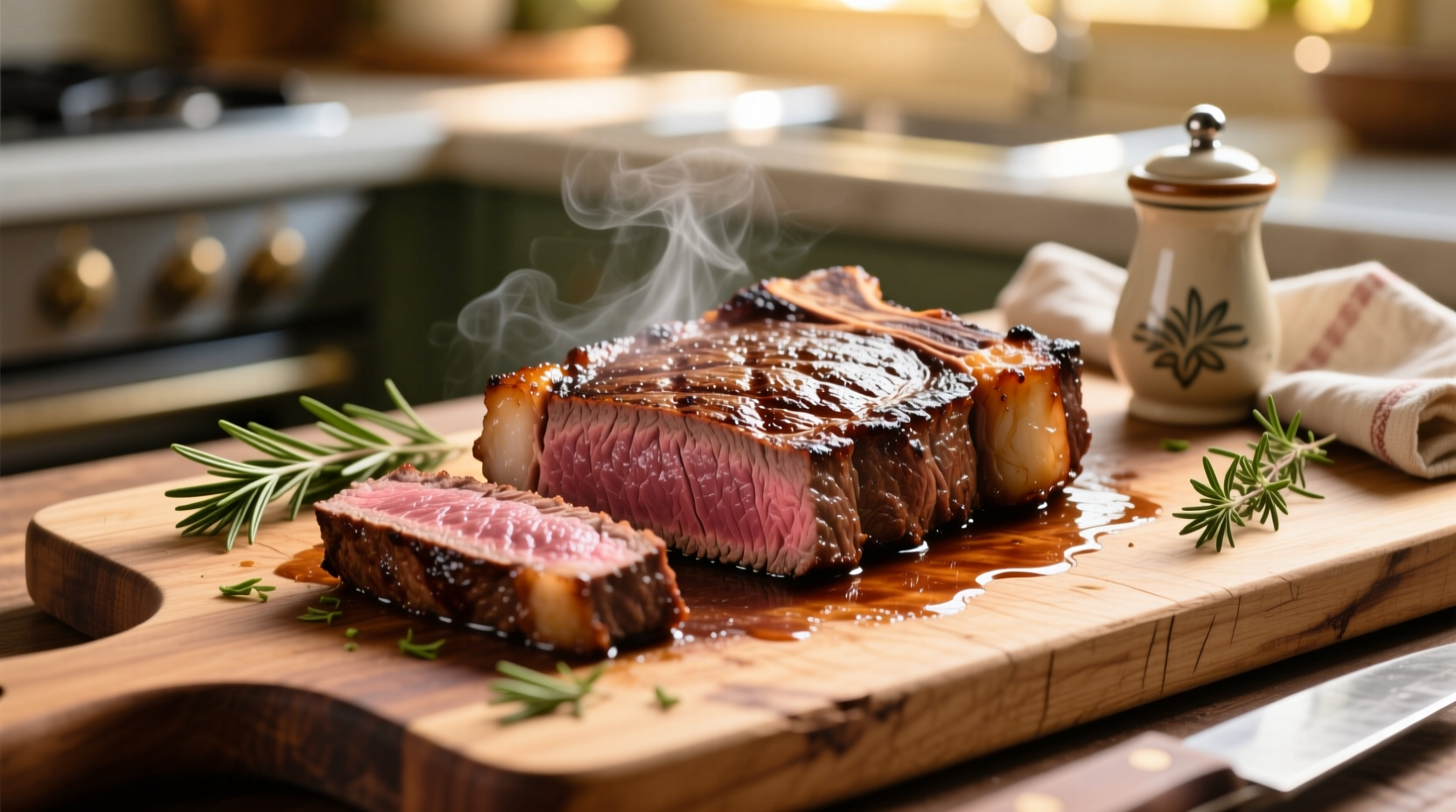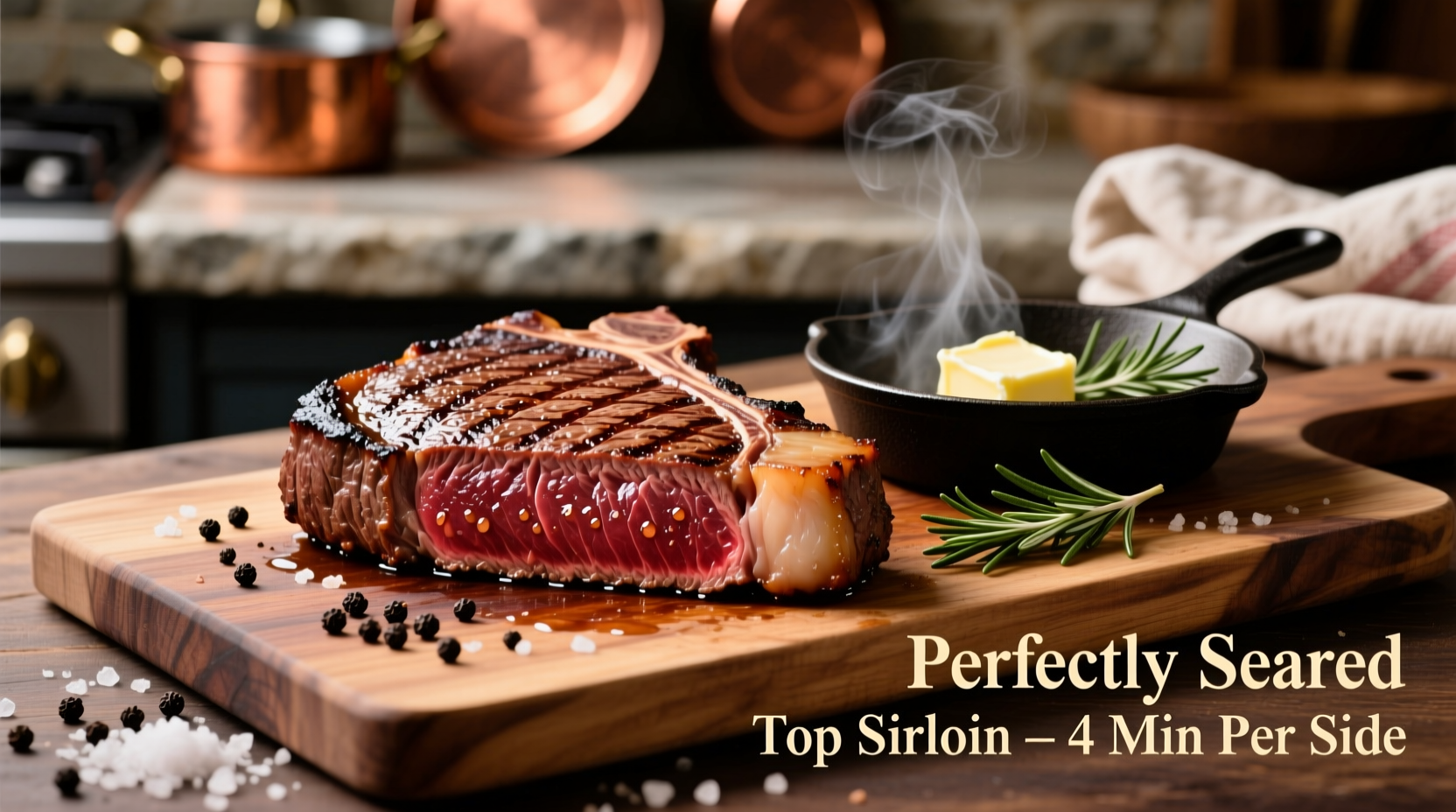Top sirloin steak offers an excellent balance of flavor and tenderness at a more accessible price point than premium cuts like ribeye or filet mignon. Understanding how to cook beef top sirloin steak properly transforms this versatile cut into a restaurant-quality meal in your own kitchen. This guide provides professional techniques anyone can master, whether you're using a stovetop, grill, or oven.
Why Top Sirloin Deserves Your Attention
Top sirloin comes from the upper hip area of the cow, offering robust beef flavor with moderate marbling. Unlike filet mignon which relies on tenderness alone, top sirloin delivers that satisfying meaty taste while remaining more affordable than premium cuts. The key to perfect top sirloin steak lies in proper preparation and cooking technique since it has less fat than ribeye, making temperature control essential.
Preparation Essentials for Perfect Results
Successful steak cooking begins long before it hits the heat. Follow these preparation steps to maximize flavor and texture:
- Quality selection: Choose steaks at least 1½ inches thick with even marbling throughout
- Temperature equilibrium: Remove steak from refrigerator 45-60 minutes before cooking
- Dry surface: Pat thoroughly with paper towels to ensure proper searing
- Strategic seasoning: Generously salt 40 minutes before cooking or immediately before (never in between)
- Strategic seasoning: Generously salt 40 minutes before cooking or immediately before (never in between)
According to USDA Food Safety and Inspection Service guidelines, proper handling of raw beef prevents cross-contamination and ensures food safety throughout preparation.
Cooking Method Comparison: Which Works Best for Top Sirloin?
Different cooking techniques yield distinct results. Consider these options when deciding how do you cook beef top sirloin steak:
| Cooking Method | Best For | Time Required | Key Advantage |
|---|---|---|---|
| Cast-Iron Skillet + Oven Finish | Consistent results indoors | 15-20 minutes | Precise temperature control |
| Direct-Heat Grilling | Summer cooking, smoky flavor | 10-15 minutes | Charred exterior, smoky notes |
| Reverse Sear (Low Oven + Quick Sear) | Thick cuts (1¾" or more) | 45-60 minutes | Perfect edge-to-edge doneness |
Step-by-Step: Perfect Pan-Seared Top Sirloin Steak
This cast-iron method delivers reliable results for how to cook top sirloin steak indoors:
- Preheat oven to 400°F and place cast-iron skillet inside for 20 minutes
- Season steak generously with kosher salt and freshly ground black pepper
- Carefully remove hot skillet and place over high heat on stovetop
- Add 1 tablespoon high-smoke point oil (avocado or grapeseed)
- Place steak in skillet and press gently for full contact
- Sear 3-4 minutes until deep brown crust forms
- Flip and sear opposite side for 3-4 minutes
- Transfer skillet to preheated oven and cook until reaching target temperature
- Remove when 5°F below desired final temperature (carryover cooking will raise it)

Precision Temperature Guide for Steak Doneness
Internal temperature determines your steak's final texture and juiciness. Use an instant-read thermometer for accuracy:
- Rare: 120-125°F (cool red center) - Remove at 120°F
- Medium-rare: 130-135°F (warm red center) - Remove at 130°F
- Medium: 140-145°F (warm pink center) - Remove at 140°F
- Medium-well: 150-155°F (slight pink) - Remove at 150°F
- Well-done: 160°F+ (little to no pink) - Not recommended for top sirloin
Top sirloin steak reaches optimal tenderness at medium-rare. Cooking beyond medium risks toughness due to its moderate marbling. The American Meat Science Association confirms that proper resting after cooking allows juices to redistribute, preventing dryness when slicing.
Critical Resting Period: Why You Can't Skip This Step
Resting your steak for 5-10 minutes after cooking serves two vital purposes:
- Allows internal temperature to equalize (carryover cooking raises temp 5-10°F)
- Enables muscle fibers to reabsorb juices that would otherwise spill out when cut
Cover loosely with foil during resting, but avoid tight wrapping which creates steam and softens your beautiful crust. This simple step transforms how to cook top sirloin steak from potentially dry to perfectly juicy.
Pro Tips for Slicing and Serving Top Sirloin
Maximize tenderness with these finishing techniques:
- Slice against the grain (perpendicular to muscle fibers) in 1/4-inch thick pieces
- Use a sharp chef's knife or serrated knife for clean cuts without tearing
- Arrange slices slightly overlapping on a warm plate
- Add finishing touches like flaky sea salt, herb butter, or simple pan sauce
Top sirloin pairs beautifully with roasted vegetables, mashed potatoes, or a simple green salad. For authentic flavor combinations, consider classic steakhouse accompaniments that complement rather than overpower the beef's natural taste.
Avoid These Common Top Sirloin Cooking Mistakes
Even experienced cooks make these errors when preparing how do you cook beef top sirloin steak:
- Moving the steak too soon: Wait until it releases naturally from the cooking surface
- Overcrowding the pan: Cook one steak at a time for proper searing
- Skipping the thermometer: Visual cues alone can't accurately determine doneness
- Cutting too soon: Slicing before proper resting releases precious juices
- Using low-quality meat: Start with USDA Choice or Prime grade for best results











 浙公网安备
33010002000092号
浙公网安备
33010002000092号 浙B2-20120091-4
浙B2-20120091-4